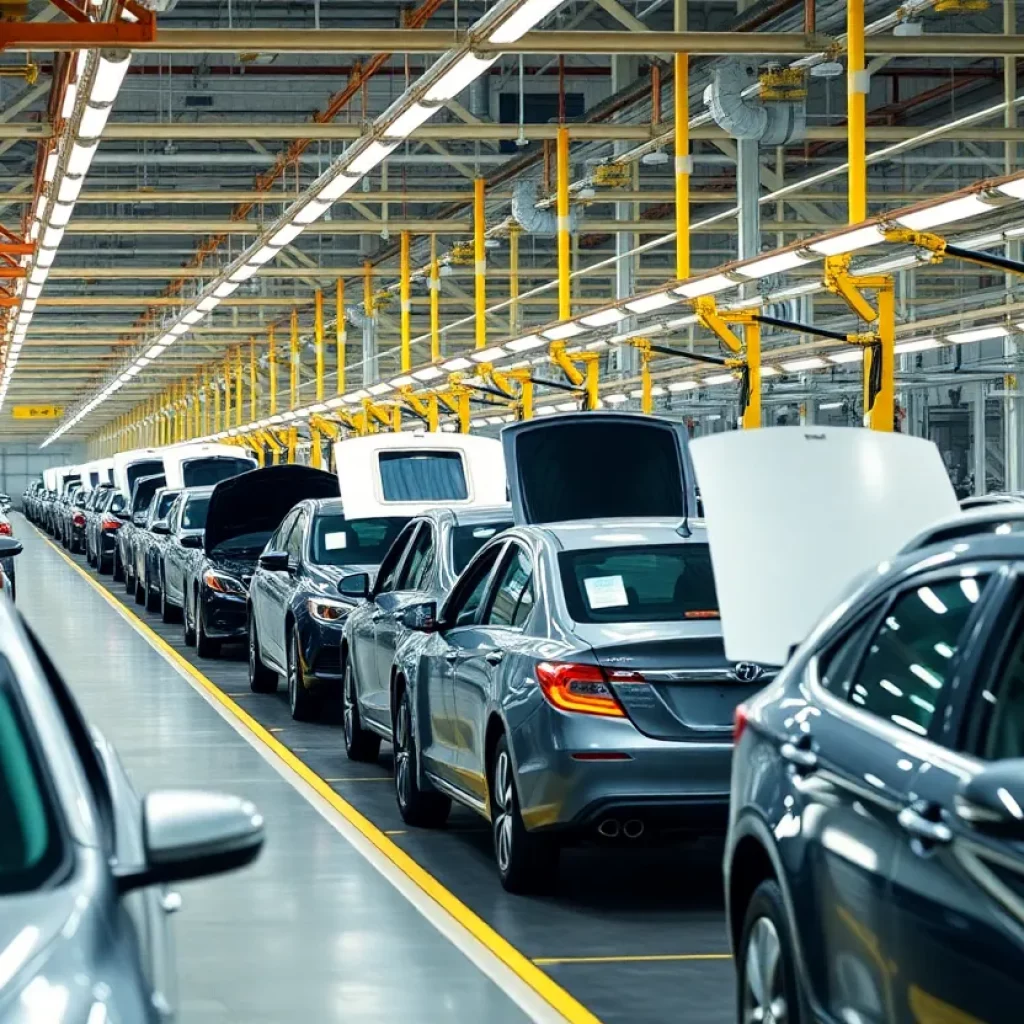News Summary
The implementation of new tariffs in Alabama is creating uncertainty for local businesses, particularly in the auto and retail sectors. With a 25% tax on imported vehicles and parts, business owners are grappling with increased costs and the tough decision of whether to raise prices. Economists warn of potential higher prices and lower availability of goods. The impact of these tariffs is set to ripple across Alabama, affecting both consumers and manufacturers as they adapt to the changing market landscape.
Alabama Businesses Feeling the Heat from New Tariffs
In the bustling city of Lincoln, Alabama, there’s a mix of excitement and apprehension as the local Honda Alabama Auto Plant recently kicked off production of the all-new 2026 Honda Passport and Passport TrailSport. The official start date was February 28, 2025, and while this is great news for the auto industry, it’s accompanied by a heavy cloud in the form of **new tariffs** that are beginning to shake things up for businesses across the state.
The Tariff Tsunami Hits Retail
Not too far away in Gadsden, clothing boutique owner Misty Smith is grappling with the harsh realities of these new mandates. With the sudden announcement of the Trump tariffs, which brings a hefty 25% tax on imported cars and parts, Smith is looking at an increase of approximately $25 on clothing items and a staggering $50 on non-clothing items. This isn’t just some small change; it directly impacts over 60% to 70% of her inventory. With such a large portion affected, Smith is caught in a tough spot, struggling with whether or not she can pass these costs on to her customers. The idea of increasing prices in a small town is enough to give anyone butterflies in their stomach.
Experts Weigh In
John Dove, an economics professor at a local university, sheds some light on the situation, explaining that tariffs are indeed a type of tax that usually gets passed down the line to consumers. These tariffs, according to the Trump Administration, are designed to tackle trade imbalances and to boost U.S. manufacturing. However, Dove has raised some red flags, warning that while these tariffs might be intended for good, they could lead to **higher prices**, **lower availability**, and even **declining product quality**. Given Alabama’s standing in the auto industry, the gradual effects of these tariffs are sure to ripple through cities across the state.
Automakers Stare Down Uncertainty
Alabama is home to numerous international auto manufacturers. While the 25% tariffs don’t apply to parts made under the U.S.-Mexico-Canada Agreement (USMCA), automakers are still on edge. Hyundai’s plant in Montgomery is relieved to report that their USMCA-compliant parts will remain tariff-free. Yet, both Toyota and Honda have announced that for now, they plan to keep prices stable. In stark contrast, the popular Hyundai Santa Fe, which is produced in Montgomery, imports a significant portion of its parts from abroad. With the road ahead uncertain, both automakers and consumers are anticipating changes in pricing strategies as they navigate this new landscape.
Interestingly, Mazda has recently reported record sales for March as customers rush to buy vehicles fearfully anticipating these new tariffs. The market is bustling, but not without its challenges. On a different note, shrimpers in Bayou La Batre are seeing the tariffs differently; they’re welcoming the changes in a bid to better compete with cheaper imported shrimp that have been cutting into their profits.
What’s Next for Alabama’s Auto Market?
With the Trump Administration expecting tariff revenue around $600 billion, Dove cautions that this amount is minuscule compared to overall government spending. The recently announced permanent tariffs apply to imported passenger vehicles and light trucks, with various timelines for implementation. Automakers like Ford and Nissan are now in the position of reassessing their plans in light of these changes. Ford has already started rolling out employee pricing discounts to soften the blow of expected price increases. Meanwhile, as new car prices rise, the used car market is anticipated to boom, pushing buyers who are looking for savings to consider second-hand options.
Final Thoughts
As Alabama’s automotive market adjusts to the new tariff reality, the tug-of-war between manufacturers, retailers, and consumers continues. With production shifts, pricing strategies, and evolving markets at the forefront, it’s definitely a dynamic time for businesses and consumers alike in the heart of Alabama. As everyone adjusts to the changes, one thing is clear: the implications of these tariffs will be felt far and wide as the landscape of both the automotive and retail industries shifts dramatically. Buckle up, folks – the impact of these tariffs is just getting started!
Deeper Dive: News & Info About This Topic
- Car and Driver: Automakers Trump Tariff Response
- Wikipedia: Tariff
- Tennessean: Will Tariffs Make Car Prices Go Up?
- Google Search: Trump tariffs impact on businesses
- MotorTrend: Ford Employee Pricing and Tariff Deal
- Encyclopedia Britannica: Economics
- Kelley Blue Book: Trump Announces Tariff Plan
- Google News: Trump tariffs automotive industry








